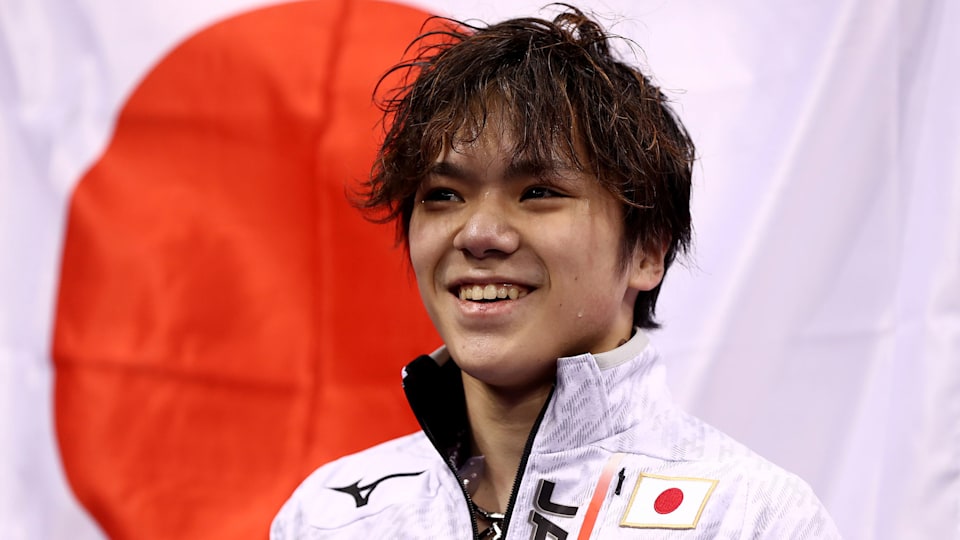Going for gold: YOG figure skater Shoma Uno among favourites in PyeongChang
Since winning two medals at the Winter Youth Olympic Games (YOG) Innsbruck 2012, Japanese figure skater Shoma Uno has been crowned world junior champion, Asian Winter Games champion and World Championship silver medallist.

After starring for fifth-placed Japan in the team figure skating team event – scoring an impressive 103.25 points to win the men’s free skating – the 20-year-old is now among the medal favourites in the men’s singles. Here, Uno reflects on how his YOG experiences have helped him in his career so far…
What are you memories of the Winter YOG Innsbruck 2012?
“The one thing that I remember from the Youth Olympic Games is that you don't get to stay in that part of your career for very long. It was a good experience and I think in the future that experience will continue to benefit me.”
What did winning a medal do for your career?
“It was not so much the result, but I learned a lot because the training environment changed totally from what I was used to. I was usually training for many hours, but at that kind of competition you can't get as much practice time in as you would like and I had to adjust to it. So the experience is benefitting me to this day as I have learned that you don't have to over-train to achieve success. I don't need to practise five or six times a day. That is the one thing I remember most.”
Do you think the YOG are beneficial for future Olympians?
“It was a very enjoyable experience for me. I think it is good preparation for athletes who want to compete in the Olympic Games.”
How did life as an elite athlete change after winning the world junior title in 2015?
“It was a little tough moving from novice to juniors. In novice, I was kind of in a bubble, but when I went to juniors I could not do all of the jumps that the others could do and that was frustrating. So it was a difficult experience initially, but experience is still experience and it is how you endure it and deal with it going forward that matters. As a junior your body is not fully formed, and you may not be able to do all of the jumps you want. But you should be patient and not worry about what the senior-level skaters are doing.”
Was there a point where you felt like you had broken through and established yourself?
“Everything changed really, really fast for me as I was going through the ranks. But in my junior career, especially the last year, I had a long period of struggle. I was struggling with the triple axel and could not do the quads like the other skaters. When I first executed the quad toe loop, everything changed. The things that I was struggling with and the worries were gone. It gave me some confidence. But you never know what is going to change inside of you.”
How important is that mental aspect of competition?
“As far as the mental aspects, I'm still working on that myself at the moment. When you are a junior you have nothing to lose, so you just have to keep on going. When you get to the senior level you are going to meet obstacles. So you will learn how to deal with them as they come. You just have to find the best solution at that moment instead of thinking too much about it.”
You’ve already competed in the team figure skating event here in PyeongChang, winning the men’s free skate. How happy were you with your performance?
“It is my first time coming to the Olympic Winter Games and I thought I would be very anxious, but I wasn't as anxious as I thought. I thought I was going to make a mistake on the quad flip, and I did, but I was able to forget about it. I’m very happy that I was able to do my best in the Olympic Games.”
